When it comes to health, not being sick does not equal being healthy. However, there are lots of small lifestyle shifts you can make that will lead you down the road to health. Here are a few simple health hacks that will help you supercharge your immune system, which is more important than ever in the face of the COVID-19 outbreak.
Hydrate, Hydrate, Hydrate
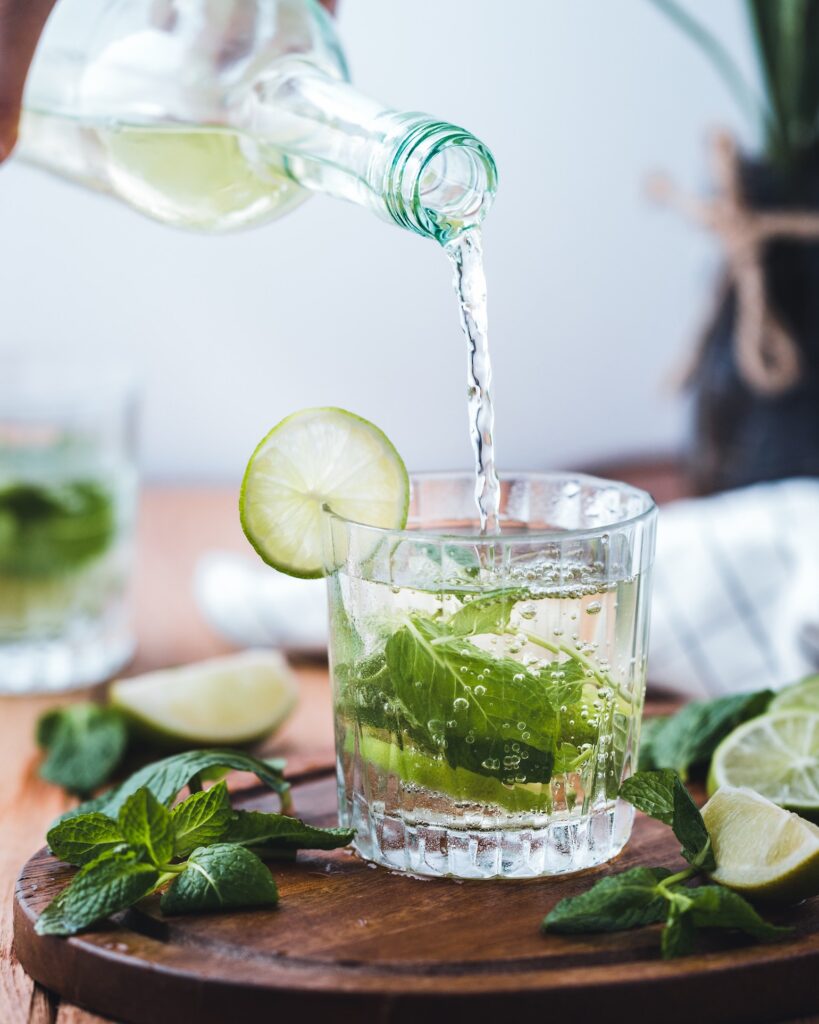
We’ve all heard it before, staying hydrated is important, but why? Up to 60% of the human body is composed of water and it serves a number of vital functions that keeps the body performing in peak condition— including playing an essential role in digestion, regulating body temperature, lubricating the joints, delivering oxygen throughout the body and keeping us healthy by naturally eliminating toxins and bacteria that could lead to illnesses. The amount of water needed daily varies by person and is affected by many factors including coffee and alcohol consumption, exercise, medications, hot temperatures, pregnancy or breastfeeding, but as a general rule 2-3 liters (68 oz – 102 oz) for women and 3-4 liters (102 oz – 132 oz) for men per day is a good guideline to follow.
Consuming that amount of water is great in theory, but keeping up with consumption can certainly be a challenge. Here are a few of our favorite hacks.
Make it easier to keep track
Buy a liter water bottle (we love this glass one by Boroux) so you know exactly how much water you are drinking and refill as necessary. Aim to meet your daily goal pre-5pm because drinking too much close to bedtime can adversely affect your sleep.
Build a new habit
Every time you take a drink of water, take seven sips instead of one. The bottle will be empty in no time.
Set reminders
Use an app like Drink Water Reminder to help keep you on track. It sends you alerts when it’s time to drink up.
And remember, you take in water from other sources like juices, fruits, vegetables, soups and other foods, but that is harder to measure. Aim for the hydration goals we mention above and consider anything extra a bonus.
Nutrition Matters
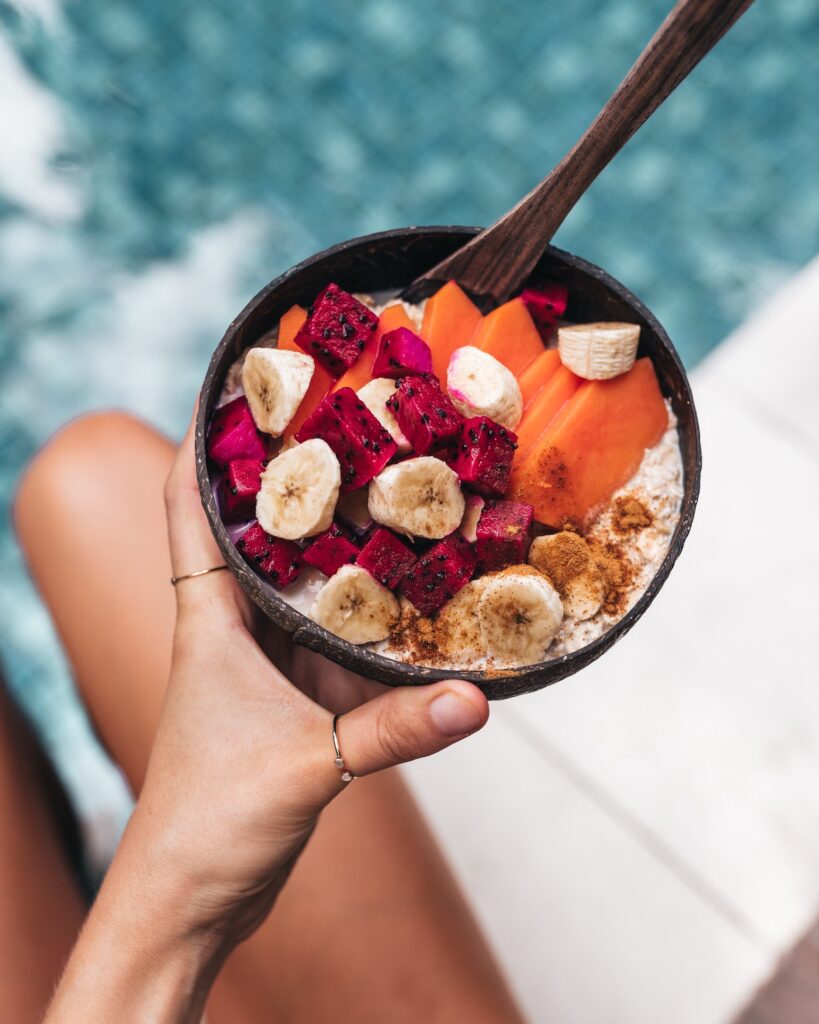
One upside of being on lockdown is that everyone is cooking more and that provides the perfect opportunity to focus on better nutrition. It doesn’t have to be as tedious as following a list of foods you should be trying to squeeze into your diet either. Some of the best nutrition advice comes from Michael Pollan and his genius “Food Rules: An Eater’s Manuel” book. Here are a few of our favorite tips.
Eat the rainbow
Different colored fruits and vegetables provide different vitamins and minerals, and by varying your diet you are more likely to include a greater range of nutrients. Eating by color keeps it simple and fun.
Don’t eat anything with more than five ingredients, or ingredients you can’t pronounce
Look at the labels of prepared sauces, frozen foods, mixes — anything that comes in a box or jar. The ingredients should be recognizable as food not something you would find in a chemistry lab.
Spend as much time enjoying the food as it took to prepare it
Eating slowly gives your body time to digest and tell you when you are full. And if ever there was a time to take a lesson from Europeans and treat meals as evening events, this is it.
Get Enough Sleep

When we sleep, this is the body’s chance to repair itself. And on the flip side of that coin, when you don’t get enough sleep your body produces fewer infection-fighting antibodies. These are some of our favorite tips for getting a better night’s rest.
Watch your alcohol consumption
One glass of wine may work wonders for helping you doze off, but a bottle interrupts your circadian rhythm and REM sleep, which in turn can compromise your immune health. (Plus, we all know hangovers last longer as you age and that is fun for exactly no one.)
Build a nightly hygiene routine and stick to it
Find a way to unwind so that your mind isn’t racing while you are trying to fall asleep. Don’t look at your phone before bed because yes, that blue light is keeping you awake. Read a book, take a bath, get a diffuser and try out different essential oils, whatever works for you.
Make a to-do list for the following day before you go to bed
You will be able to relax, fall asleep easier and stay asleep longer if you aren’t constantly running through all the things you need to do the next day.
Build Movement Into Your Day
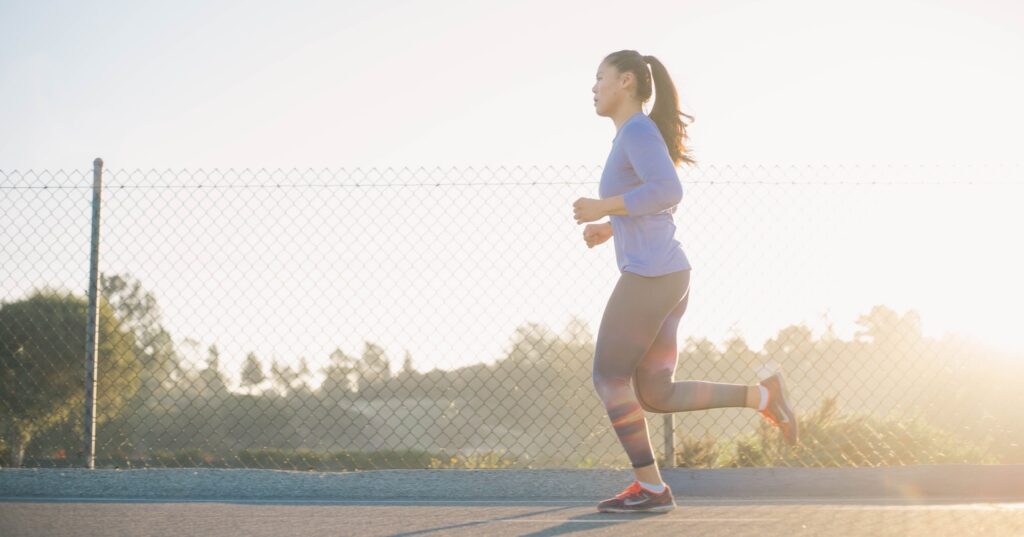
Working from home can certainly throw a wrench into your routine, but the key is to build a new one. Working in an office you might have access to a stand-up desk, stairs that you take a couple of times a day and even that lunchtime walk to the local café to help you get your steps in. At home, it’s tougher, but even more important.
Exercise helps alleviate stress (another factor that weakens the immune system), lowers inflammation in the body and some argue that the brief rise in the body’s temperature during and after exercise help to fight off harmful bacteria in the body.
Try a fitness app
There are so many to choose from, take turns and try them all (we have nothing but time right now, people). These are some of our favorites.
Take walks
Go for one in the morning, one at lunch and one after you have finished work for the day. They can be as short as 15 minutes, but it will make a huge difference both physically and mentally.
All movement is good movement
Run up and down the stairs in your house, do five press-ups every time you get up from your desk, clean the apartment — it all counts.
Cultivate a Positive Attitude
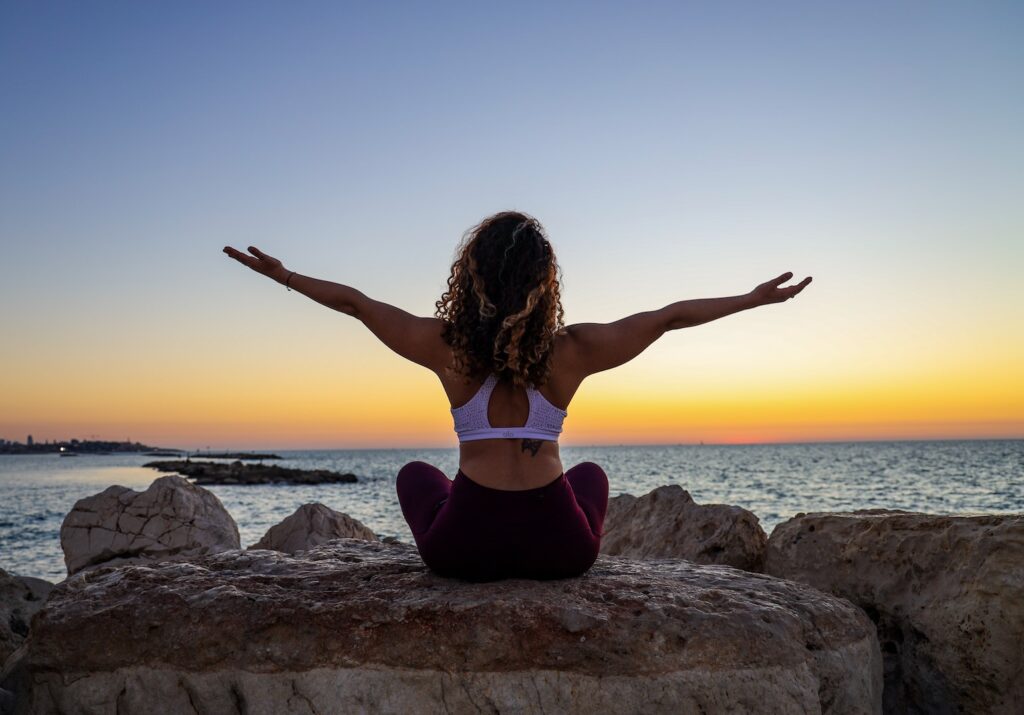
According to the Mayo Clinic, looking on the bright side of life has more benefits than just a sunny disposition — it can increase lifespan, improve cardiovascular health, lower rates of depression and help you cope with distress (hello, COVID-19, we are looking at you).
Practice gratitude
Carving out as little as 10 minutes a day to think about all the good things that exist in your life will shift your outlook and health over time. Buy a gratitude journal, set an alarm for the same time every evening and ask yourself, what is the best thing that happened to me today?
Take up meditation
The brain is a muscle and just like the other muscles in your body it needs to be exercised. Yogis have known this for centuries and the western world is finally starting to catch on. Learning to control your thoughts and slow the mind can have incredible benefits for mind and body: lowering stress, better concentration, less anxiety and it even decelerates aging in the brain.
Spread positivity
Write thank you notes, do something kind for a neighbor, call an old friend you haven’t spoken to in a while. Try to go 24 hours without complaining (it’s hard, trust us) and see how that affects your mental health. Small steps lead to big changes.
More from Better:
10 of the Best Physical and Mental Health Apps to Keep You Connected Right Now
13 Health Trends to Try in 2020
12 Expert Tips to Maximize Your Workout
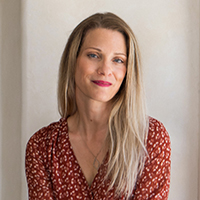 Casey Gillespie is the editor-in-chief of SPACES magazine, but she doesn’t only write about design. Fashion, beauty, art, culture, luxury and wellness are favorite topics as well. Her work has been featured in Elle, The Telegraph, Furthermore, London Evening Standard, Haute Living, Sphere, Belmond, Modern Luxury and more. And when she is not pounding it out on the keyboard, you’ll find her hiking the trails in Marin County with her husband and French bulldog, Henry, or drinking wine and eating cheese. But probably drinking wine and eating cheese.
Casey Gillespie is the editor-in-chief of SPACES magazine, but she doesn’t only write about design. Fashion, beauty, art, culture, luxury and wellness are favorite topics as well. Her work has been featured in Elle, The Telegraph, Furthermore, London Evening Standard, Haute Living, Sphere, Belmond, Modern Luxury and more. And when she is not pounding it out on the keyboard, you’ll find her hiking the trails in Marin County with her husband and French bulldog, Henry, or drinking wine and eating cheese. But probably drinking wine and eating cheese.

